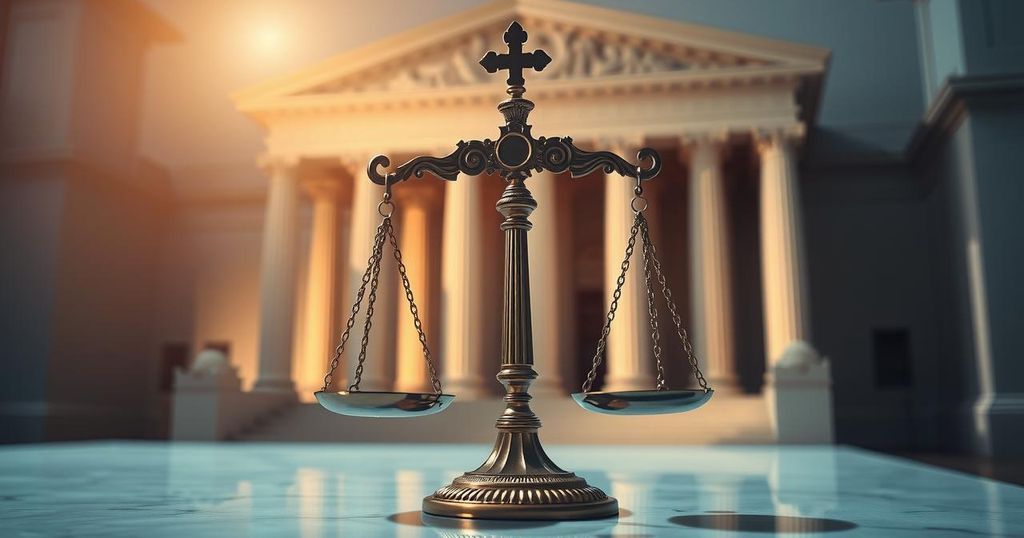World news
2024 PRESIDENTIAL ELECTION, AFRICA, AMERICA, BADGER STATE, BARRY BURDEN, BRAD SCHIMEL, BUILDING AMERICA ’ S FUTURE, DEMOCRATIC RED, DIANE HENDRICKS, DONALD TRUMP, EL, ELECTION, ELON MUSK, ERIC HOLDER, GEORGE SOROS, GHANA, JUDICIARY, PRESIDENTIAL ELECTION 2024, SCHIMEL, SUSAN CRAWFORD, TRUMP, UNIVERSITY OF WISCONSIN - MADISON, US ELECTIONS, WA, WISCONSIN, WISCONSIN DEMOCRACY CAMPAIGN
Lena Nguyen
0 Comments
Wisconsin Supreme Court Election: A Pivotal Battle for 2025 Political Landscape
The Wisconsin Supreme Court election on April 1, 2025, will determine control of the court and has already garnered significant political attention and funding. Liberal Susan Crawford and conservative Brad Schimel are the primary candidates, and their race reflects larger political dynamics in a swing state as they address pressing issues such as abortion rights. Campaigning efforts are intense, with major financial contributions and endorsements shaping the electoral landscape.
The upcoming Wisconsin Supreme Court election scheduled for April 1, 2025, is expected to be a significant political contest, despite deciding only a single seat. This race is poised to be one of the most expensive and contentious political battles of the year, with implications for the control of the seven-member court and a 19th-century abortion ban in Wisconsin.
The contest features liberal candidate Susan Crawford, a Dane County Circuit Judge, and conservative Brad Schimel, a Waukesha County Circuit Judge. This election serves as a crucial test for voters in Wisconsin regarding their sentiments towards Republican and Democratic politics, especially in the early months of Donald Trump’s presidency. Moreover, it highlights the judiciary’s pivotal role in addressing contentious issues such as abortion rights and public sector union protections.
Previous Wisconsin Supreme Court elections have reached record spending levels, with the upcoming race expected to surpass the $51 million spent in 2023. Political groups and billionaires on both sides are funneling significant contributions into the race, reflecting the vital importance of this election. Supporters like George Soros and Diane Hendricks have made substantial donations to their respective party committees, bolstering campaign efforts.
Political advertisements, including a $1.6 million campaign from Elon Musk’s associated group, Building America’s Future, are set to intensify in the coming weeks. Musk voiced his preference for Schimel, who has welcomed the potential for an endorsement from Trump, a move that could influence the electoral landscape in Wisconsin significantly.
Political observers, such as Barry Burden from the University of Wisconsin-Madison, describe the race as potentially transformative, indicating it may shape future judicial decisions on divisive issues. With Democrats and Republicans both leveraging considerable resources to sway the election, each party views the results as a reflection of voter priorities regarding judicial influence over governmental policies.
High-profile campaign efforts include visits from prominent figures like former Attorney General Eric Holder, who plans to support Crawford, and Democratic National Committee leaders aiming to bolster party enthusiasm in Wisconsin. The outcome will test whether Democrats can recover from recent electoral challenges while showcasing Republican support for more conservative judicial appointments.
Past election trends illustrate how competitive Wisconsin has become in determining national outcomes, with recent presidential races decided by narrow margins. The April election will not only determine the makeup of the Supreme Court but also signal the broader political landscape in a vital swing state, leading up to the 2024 presidential eviction.
Both candidates are preparing to address controversial issues during their campaigns, including the potential reinstatement of Wisconsin’s 1849 abortion law, which has no exceptions for rape or incest. With a liberal candidate aligned with healthcare choices and a conservative candidate emphasizing judicial restraint, the implications of their respective stances on such policies will be closely scrutinized as voters head to the polls.
The election for the Wisconsin Supreme Court is shaping up to be a pivotal event in 2025, presenting significant political stakes for both parties. With a record amount of campaign funding and high-profile endorsements, the race will test voter attitudes in a crucial swing state. The outcome will have implications not only for the future of abortion rights and judicial governance in Wisconsin but also for the national political landscape ahead of the presidential elections.
Original Source: www.cnn.com




Post Comment